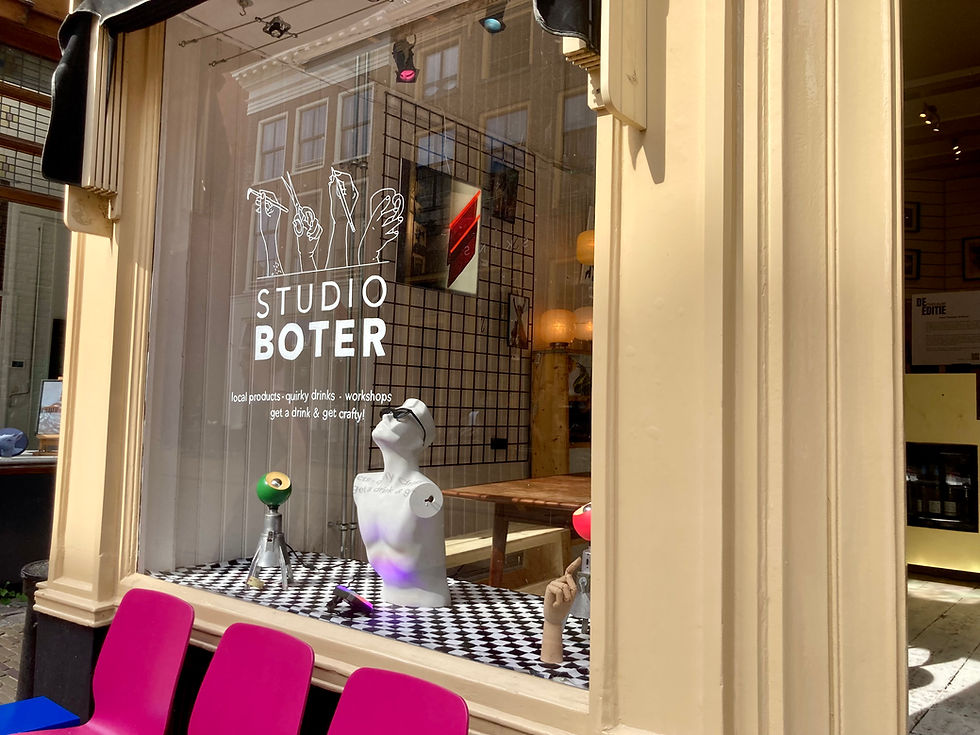A New Arabic Wave in Music, or Just New to the West?
- Maroua Zourkane

- Jan 29
- 3 min read
Updated: Jan 30

Saint Levant, Elyanna, Bayou... A wave of artists from the Middle East and North Africa (MENA) diaspora are making an impact, bringing Arabic sounds, themes, and multicultural identities to the global music scene. Dubbed "Arabizi" by Rolling Stone, these artists are at the forefront of a new genre that blends Arabic and Western influences.
But is this "new wave" truly groundbreaking, or is it simply a rediscovery by Western audiences of something the Arab world has known for decades? In an interview with The Glass Room, Dounia, an Algerian-Egyptian journalist, challenged the narrative presented by Rolling Stone and other Western media saying: "Nothing about this is new."
What is “Arabizi”?
The so-called "Arabizi” is defined by artists like Elyanna, a Palestinian singer born in Chile, who fuses Arabic lyrics with pop and R&B. And Saint Levant, a French-Algerian-Palestinian artist, who merges hip-hop, R&B, and trilingual lyrics in Arabic, English, and French.
Both artists incorporate traditional Arabic instruments like the oud and qanun while addressing themes of longing, exile, war, identity, and pride in heritage. Their tracks - such as Comme C’est Beau, On This Land, and Mektub - resonate deeply with diaspora audiences and those supporting Palestinian culture.
Across Europe and North America, events celebrating this multicultural identity are thriving. In the Netherlands, gatherings in Amsterdam and Rotterdam mix traditional Arabic sounds with contemporary genres, reflecting the multicultural identities of their audiences.
What Does This Mean for the Diaspora?
For Dounia, the rise of Arabizi is more than just a musical trend. “It’s the movement of the diaspora reclaiming its identity and sound and incorporating it into music,” she explains. This genre, at the crossroads of cultures, blends the Western influences these artists grew up with and the Arabic sounds that shaped them at home.
She emphasizes that these artists’ journeys deeply resonate within the diaspora. “Their music tells our stories - our search for identity, our struggles, our histories,” she says. For generations who grew up in the West but are tied to Arab roots, figures like Saint Levant are particularly significant. “When he mixes Arabic, French, and English in one sentence, it reflects how we speak. We do the same thing.”
These diaspora narratives touch on universal themes - exile, racism, and the feeling of never fully belonging. “These experiences resonate on different levels, whether with people who migrated young or those born and raised far from their ancestral lands,” she adds.

Arabic Pop, R&B, and Rap: A Longstanding Legacy
“The mainstream Arabic genres that people now call ‘Arabizi’ - whether pop, R&B, or rap -have existed in the Arab world for decades,” Dounia explains. Far from being a recent phenomenon, Arabic pop has dominated Middle Eastern music scenes since the 1990s. In Egypt, the largest music market in the region, legends like Amr Diab, Elissa, and Assala Nasri have been redefining popular music for decades.
“For years, Arabic pop was the most listened-to genre. While rap is now gaining ground, pop still reflects our cultures,” she says. The numbers speak for themselves: Amr Diab remains the most-streamed artist on Anghami, the region’s leading music platform, with billions of streams.
Dounia also reminds us that these genres - whether Arabic pop, R&B, or rap - originated from local MENA artists, not the diaspora. “They fill stadiums, win awards, and rack up millions of views on their music videos. They are the ones who created and exported these sounds for decades.”
The Overlooked Role of the French-Arab Diaspora
Dounia highlights another crucial aspect: “Even in terms of diaspora representation, this is nothing new,” she says, pointing to Raï N’B, a fusion genre born in France in the early 2000s, primarily driven by the Algerian diaspora. “This hybrid music was created in France,” she adds.
She argues that Western narratives often erase the contributions of North African and Arab communities in France. “This ignores the impact of Maghrebi and Arab music in France, where these communities were the first to popularize these sounds.” This erasure is especially striking when recalling that artists like Cheb Mami, a famous Raï singer, performed at the Super Bowl in 1994 - an achievement rarely acknowledged today.
The real story is not about a new genre emerging - it is about how Western audiences are rediscovering and reframing Arab music through the lens of diaspora experiences. Recognizing the deep history of Arabic pop, R&B, and rap, as well as the significant contributions of local MENA artists and the long-standing influence of Arab diasporas in France and beyond, is crucial in ensuring that this music is understood and appreciated in its full context.



Comments